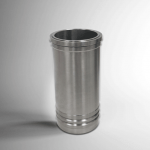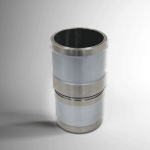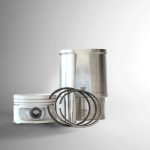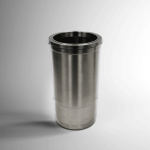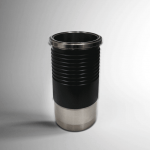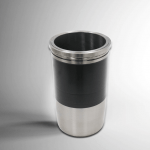?How do I know When to Replace the Cylinder Liner

How do I know When to Replace the Cylinder Liner?
The engine liner is responsible for ensuring the extremely hot exhaust does not damage the internal components of the engine. Due to its very important function, using replaceable cylinder liners can save time and costly machine work.
But how do you determine if replacement is necessary? Examine your engine’s condition by performing the following procedure after removing and cleaning the cylinder liner:
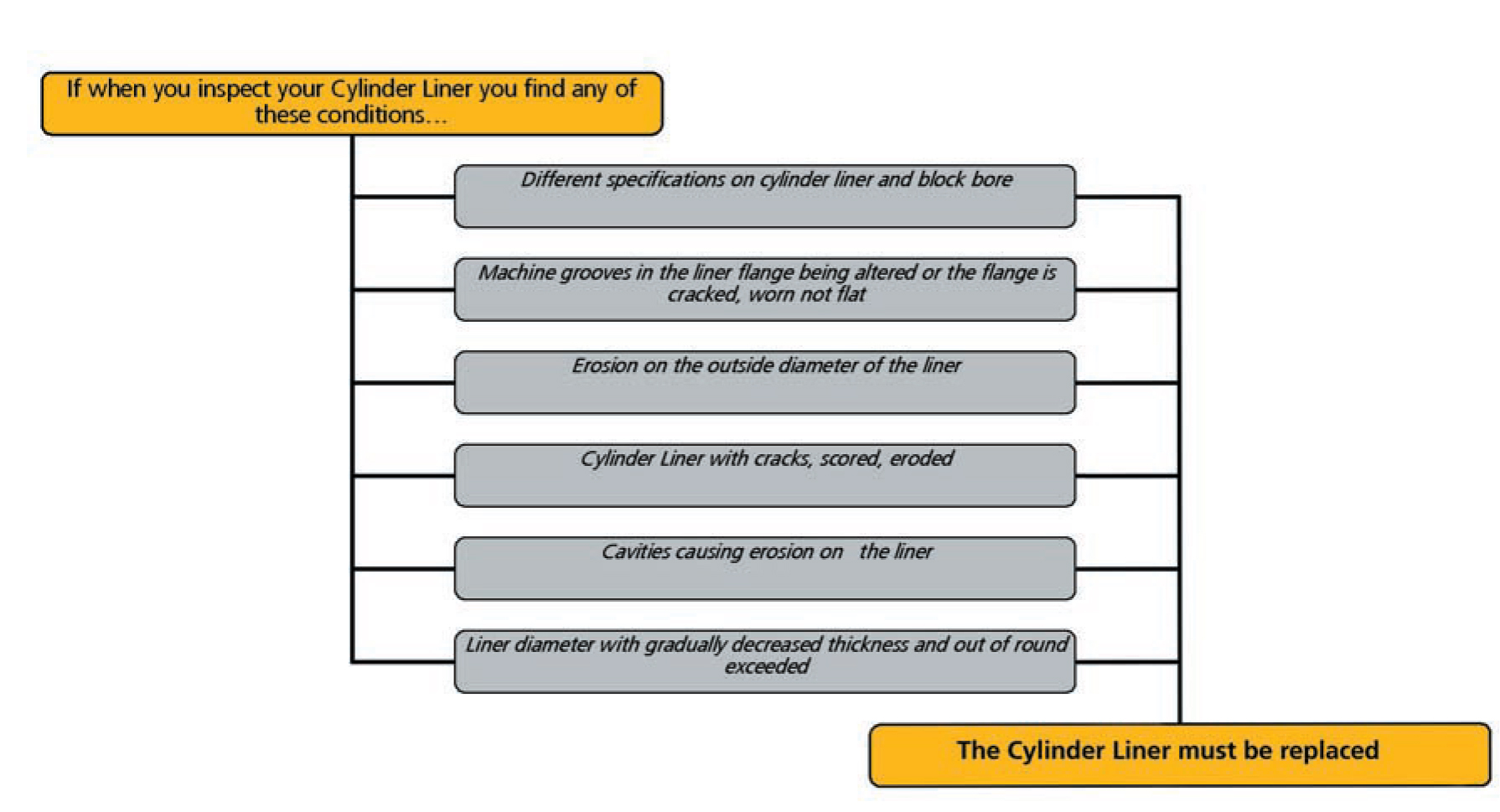
liner wet or dry liner?
The first thing to do is to determine the type of liners—wet or dry—that are used in the unit being rebuilt (Dry liners do not require a water seal and can simply be pulled out (and the new liner pressed into place. Wet liners have grooves cut into them for fitting O-ring seals to prevent water leakage into the crankcase).
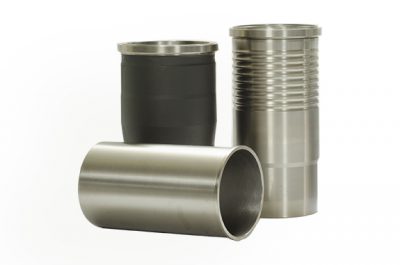
When you are removing the Cylinder Liner, the correct method must be followed. Damage to the cylinder liner and the cylinder block may occur if the proper tools and procedures are not used.
It is important to note that whenever cylinder liners are taken out from an engine, they should be stored in an upright position. Cylinder liners left on their side for any length of time can become distorted,making the installation process difficult or even impossible.
If cylinder liners are going to be reused, mark them so that they can be installed in the cylinders from which they were removed. If the cylinder liners are not to be installed at this time, oil them lightly with clean engine lubricating oil and store them upright in a clean, dry area.
How to install cylinder liner
Before you inspect the liner, it must be cleaned. Once this is done, it is time to inspect the liner.
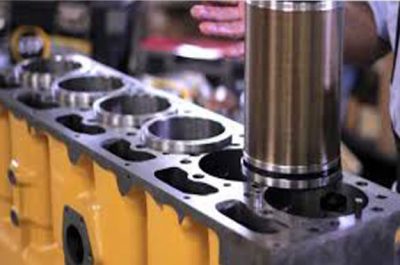
Check the cylinder liner for cracks, freeting or scoring. If any crack, fretting or scoring is detected, the cylinder must be replaced with a new one. If this is not the case, continue looking for cavitation erosion on the liner.
Erosion results from poor cooling system maintenance. If uncorrected, it will eventually make holes through the cylinder liner. This can cause combustion gases to blow water out of the radiator. It can also cause oil in the coolant or, when the engine is stopped, water to fl ow into the cylinder. If cavitations are found, the liner must be replaced.
As a reminder, it is important to state that if new piston rings are being installed, a new cylinder liner must also be installed. The matching of the piston and cylinder liner sizes is critical when installing new pistons or cylinder liners.
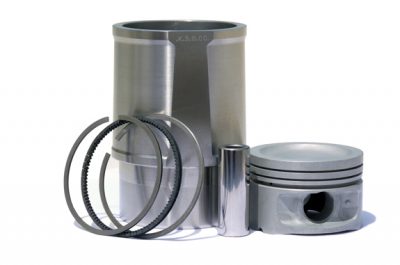
Causes of Cracked, Broken, Scored and Distorted Liners
Cylinder liners may crack because of poor cooling, improper fit of piston or pistons, incorrect installation, foreign bodies in the combustion space, or erosion and corrosion. Improper cooling, which generally results from restricted cooling passages, may cause hot spots in the liners, resulting in liner failure due to thermal stress.
Scale formation on the cooling passage surfaces of liners may also cause hot spots; wet liners are subject to scale formation. Proper cooling of dry liners requires clean contact surfaces between the liners and the cylinder block. Particles of dirt between these surfaces cause air spaces, which are poor conductors of heat. Films of oil or grease on these mating surfaces also resist the flow of heat.
Distortion, wear, or breakage may also result if a liner is not properly seated. Causes of improper liner seating may be metal chips, nicks, or burrs, or improper fillets.
Scored cylinder liners may become scored (scratched) by several means. These scratches degrade the engine’s performance and require some type of repair. Scored cylinder liners may be caused by broken piston rings, a defective piston, improper cooling, improper lubrication, or the presence of foreign particles or objects.
Dust particles drawn into an engine cylinder will mix with the oil and become an effective but undesirable lapping compound that may cause extensive damage.
The importance of keeping the intake air clean cannot be overemphasized. Another precaution you should take is to make sure that when you replace a cylinder head, you leave no metal chips, nuts, bolts, screws, or tools in the cylinder. Scoring may be seen in the form of deep or shallow scratches in the liner surface.
With most liner scoring, there will be corresponding scratches on the piston and piston rings. The symptoms of scoring may be low firing or compression pressure and rapid wear of piston rings. The best method for detecting scoring is visual inspection.
Scoring as a result of insufficient lubrication or dirt in the lubricating oil can be prevented if lubricating equipment (filters, strainers, and centrifuges) is maintained properly. Lube oil must be purified according to required procedures.
Read More
- Types of cylinder liner
- Wet cylinder liner Install
- Cylinder liner
- Installing Cylinder Liners
- Liner Failure Analysis and key points for how to work and repair the liner failure
- Products (types of diesel and petrol cylinder liner)
- What Is Cylinder Liner? | Material for Cylinder Liner | Function of Cylinder Liner | Types of Cylinder Liner
- How do I know When to Replace the Cylinder Liner?
- What is a cylinder liner?
- Investigation on the effect of honing parameters on cylindricity of engine cylinder liner
- What is a cylinder liner? Types of cylinder liners In gasoline and diesel engines
- What is a cylinder liner and the introduction of all types of cylinder liners in Gasoline and Diesel engines
